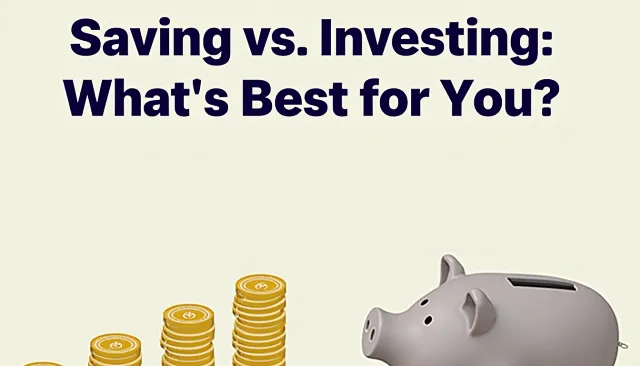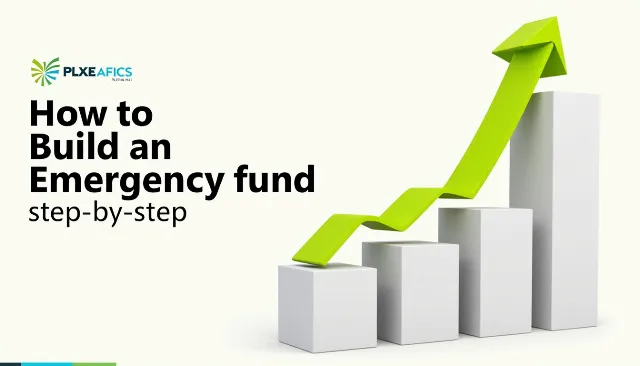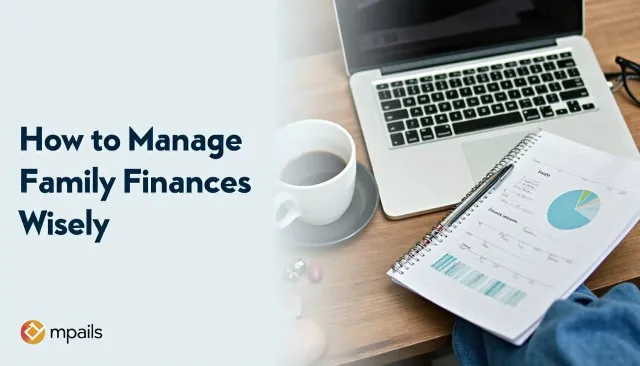1. Understanding Financial Freedom: What It Really Means
Financial freedom means having enough money to live the life you want without constantly worrying about bills or debt. It is not just about being rich; it is about feeling secure and confident with your money. When you reach financial freedom, you can make choices freely, like traveling, starting a business, or spending more time with family.
Being financially free also means you don’t depend on one source of income. You may have savings, investments, or passive income that help you cover your expenses. This gives you a sense of control over your life. People who are financially free can focus on goals and dreams instead of being stressed about money every month.

To achieve financial freedom, it is important to understand your money habits and plan ahead. You need to save, invest, and manage your expenses wisely. Financial freedom is a long-term journey, but starting in your 30s gives you a great advantage. With small but consistent steps, anyone can reach a stage where money works for them, instead of them working for money.
2. The Importance of Starting Early
Starting early is one of the most important steps toward financial freedom. When you begin saving and investing in your 20s or early 30s, your money has more time to grow. This is because of something called “compound interest,” where your money earns money over time. Even small amounts invested regularly can grow into a large sum in the future.
Early planning also helps you avoid stress later. If you wait until your 40s or 50s to save, you may have to work harder or spend less to catch up. Starting early gives you a head start and more freedom to make choices. It also allows you to take smart risks, like investing in stocks or starting a small business, which can increase your wealth faster.
Even if you cannot save a lot at first, consistency matters more than the amount. Saving $50 or $100 every month in your 30s can grow into a big fund by your 40s or 50s. The key is to start now, keep learning about money, and make small but regular steps toward your financial goals.
3. Assessing Your Current Financial Situation
Before you plan for financial freedom, you need to know where you stand. This means looking at how much money you earn, how much you spend, and how much you owe. Writing down your income, expenses, and debts gives a clear picture of your financial health. Without this step, it is hard to make smart decisions about saving or investing.
Assessing your finances also helps you find areas to improve. You may discover that you spend too much on unnecessary items or that you have debts with high interest rates. Knowing this allows you to take action, like cutting costs, paying off loans faster, or saving more for the future.
This process also builds awareness about your habits. Tracking your money helps you stay disciplined and avoid mistakes. When you understand your financial situation clearly, you can make a plan that fits your life and goals. This step is the foundation for reaching financial freedom in your 30s.
4. Setting Clear and Achievable Financial Goals
Setting financial goals is like having a roadmap for your money. Goals give you direction and motivation to save, invest, and plan wisely. Without goals, it is easy to spend money without thinking and delay building wealth. Start with simple goals, like saving for an emergency fund, paying off debt, or investing a small amount every month.
Your goals should be specific, realistic, and time-bound. For example, instead of saying “I want to save money,” say “I want to save $5,000 in two years.” This makes your goals clear and measurable. You can also have short-term, medium-term, and long-term goals, like buying a home, planning for retirement, or creating a passive income stream.
Achieving financial goals requires planning and consistency. Break bigger goals into smaller steps and celebrate small wins along the way. This keeps you motivated and makes the journey less stressful. Clear goals help you focus on what really matters and take smart actions to achieve financial freedom in your 30s.
5. Creating a Realistic Budget That Works
A budget is like a plan for your money. It helps you know how much money is coming in and how much is going out. Creating a budget is important because it shows you where your money is going and helps you save more. Without a budget, it is easy to spend without thinking and fall behind on your financial goals.
To create a realistic budget, start by listing your income and all your expenses. Include fixed costs like rent and bills, and variable costs like groceries and entertainment. Look for areas where you can save, such as eating out less or using discounts. A budget should fit your life, not feel like a punishment.
Following your budget consistently builds good money habits. It allows you to save, invest, and plan for the future. Over time, a budget gives you control over your money and helps you move closer to financial freedom. Remember, a budget is flexible—adjust it as your income or goals change.
6. Building an Emergency Fund for Safety
An emergency fund is money you save for unexpected situations, like medical bills, car repairs, or job loss. Having this fund is important because it prevents you from taking loans or using credit cards with high interest during emergencies. It acts like a safety net and gives peace of mind.
Start by saving a small amount each month, even $50 or $100. Aim to build three to six months’ worth of living expenses over time. Keep this money in a safe and accessible place, like a savings account, so you can use it when needed. The key is consistency and discipline.
Having an emergency fund also reduces stress and allows you to focus on long-term goals like investing or starting a business. When unexpected expenses come, you won’t have to derail your financial plan. A strong emergency fund is a foundation for achieving financial freedom in your 30s.
7. Understanding and Managing Debt Effectively
Debt is money you borrow and must pay back, usually with interest. While some debt, like a home loan, can be helpful, high-interest debt like credit cards can slow your progress toward financial freedom. Understanding your debt is the first step to managing it wisely.
Start by listing all your debts, including amounts, interest rates, and minimum payments. Focus on paying off high-interest debts first, while still making minimum payments on others. Avoid borrowing more money unless necessary, and try to negotiate better interest rates if possible.
Managing debt effectively frees up money for saving and investing. It also improves your financial health and credit score. When you pay off debt strategically, you reduce stress and move closer to your goal of financial freedom. Learning to control debt in your 30s sets a strong foundation for the future.
8. Saving vs. Investing: Knowing the Difference
Saving and investing are both ways to grow your money, but they work differently. Saving means keeping your money safe in a bank account or a similar place. It is useful for short-term goals or emergencies because your money is easy to access.
Investing means putting your money into assets like stocks, bonds, or mutual funds with the goal of earning more over time. Investments can grow faster than savings, but they also come with some risk. Understanding the difference helps you decide how much to save and how much to invest.
A smart plan combines both. Save enough for emergencies and short-term goals, while investing for long-term growth. By balancing saving and investing in your 30s, you can build wealth steadily and move toward financial freedom without unnecessary risks.
9. Choosing the Right Investment Strategies in Your 30s
Investing in your 30s is important because it gives your money more time to grow. There are many options, like stocks, bonds, mutual funds, or real estate. Each has different risks and rewards, so it’s important to choose investments that match your goals and comfort level.
Younger investors can afford to take more risks because they have time to recover from losses. For example, investing in stocks or growth-oriented mutual funds can bring higher returns over decades. It is also smart to diversify, which means spreading your money across different investments to reduce risk.
Learning about investment strategies helps you make informed decisions. You don’t need to be an expert; even small investments made consistently can grow significantly over time. Choosing the right strategy in your 30s sets a strong path toward financial freedom.
10. Exploring Passive Income Opportunities
Passive income is money you earn without actively working for it every day. Examples include rental income, dividends from stocks, or earning from online content. Having passive income helps you cover expenses and reduces dependence on your regular job.
Starting passive income streams early allows your money to grow over time. Even small efforts, like investing in dividend stocks or creating an online course, can pay off in the long run. The key is to choose opportunities that match your skills, interests, and risk level.
Passive income also gives freedom to spend time on what matters most, like family, learning new skills, or traveling. Combining passive income with saving and investing helps you reach financial freedom faster and build wealth that lasts a lifetime.
11. The Power of Compound Interest
Compound interest is when your money earns money, and then that earned money also starts earning. It is like planting a tree: over time, it grows bigger and stronger. The earlier you start saving or investing, the more time compound interest has to work for you.
For example, if you invest $100 every month in a fund that earns 8% per year, in 10 years it will grow much more than just the total money you added. Compound interest rewards patience and consistency, making even small amounts grow into large sums over decades.
Understanding compound interest motivates you to start early and stay consistent. It is one of the most powerful tools for achieving financial freedom in your 30s. The more disciplined you are, the faster your money can grow and work for you.
12. Smart Ways to Increase Your Income
Increasing your income is a key step toward financial freedom. More income allows you to save, invest, and build wealth faster. You can increase your income by asking for a raise, switching to a higher-paying job, or learning new skills that make you more valuable.
Another way is to create additional income streams, like freelancing, online businesses, or part-time work. Even small side incomes add up over time and can significantly improve your financial situation. Consistency and effort are important to make these additional income sources sustainable.
Increasing your income also gives you freedom to pursue goals without feeling restricted. When combined with smart saving and investing, higher income accelerates your journey toward financial freedom in your 30s.
13. Cutting Unnecessary Expenses Without Sacrificing Lifestyle
Cutting unnecessary expenses is about spending money wisely, not living a life of deprivation. Many people spend on things they don’t really need, like daily expensive coffee, subscription services, or impulse shopping. Identifying these areas helps free up money for saving and investing.
Start by tracking your spending for a month. Look for items that can be reduced or removed without affecting your comfort. Simple changes, like cooking at home, using public transport, or limiting online shopping, can save a surprising amount over time.
Smart spending helps you achieve your financial goals faster. It teaches discipline and makes you more aware of how you use your money. By cutting unnecessary expenses, you can enjoy life while still building wealth and moving closer to financial freedom.
14. Protecting Your Wealth: Insurance and Risk Management
Protecting your money is just as important as earning it. Insurance helps cover unexpected expenses, such as accidents, illnesses, or damage to property. Without insurance, emergencies can wipe out your savings and delay your financial goals.
There are different types of insurance, like health, life, and property insurance. Choosing the right coverage ensures you are safe from financial shocks. Risk management also includes having an emergency fund and avoiding high-risk financial decisions.
By protecting your wealth, you safeguard your financial freedom. You can focus on saving and investing without worrying about unexpected problems. Being prepared for risks is a smart step toward a secure and stable financial future.
15. Retirement Planning Early: Why It Matters
Planning for retirement in your 30s gives you a huge advantage. Starting early allows your savings and investments to grow over decades, thanks to compound interest. Even small contributions now can become a large fund later in life.
Think about the lifestyle you want after retirement and calculate how much money you will need. Contributing to retirement plans or pension schemes regularly ensures you are prepared. This planning also reduces stress later, as you won’t need to rush to save large amounts in your 40s or 50s.
Early retirement planning builds confidence and financial security. It gives you the freedom to make choices now, like switching jobs or starting a business, knowing your future is protected. Planning in your 30s is a smart step toward lifelong financial freedom.
16. Leveraging Tax Benefits for Maximum Savings
Taxes can take a large portion of your income, but smart planning can reduce them legally. Many countries offer tax benefits for savings, investments, or retirement contributions. Using these options helps you keep more money while building wealth.
For example, contributing to retirement accounts, investing in certain government-approved schemes, or claiming deductions for expenses can lower your taxable income. Learning about these benefits and applying them consistently increases your overall savings.
Leveraging tax benefits allows your money to grow faster. It is a smart, legal way to save more and invest for the future. Understanding and using tax advantages in your 30s gives you an important boost toward financial freedom.
17. Staying Disciplined and Avoiding Lifestyle Inflation
Lifestyle inflation happens when your spending increases as your income grows. For example, getting a raise and buying a bigger car instead of saving or investing more. Avoiding this trap is important to reach financial freedom faster.
Staying disciplined means prioritizing saving and investing over unnecessary spending. It helps to create rules for yourself, like saving a fixed percentage of your income or delaying non-essential purchases. Consistency matters more than perfection—small, repeated actions add up over time.
By controlling lifestyle inflation, you can grow your wealth steadily. This discipline ensures that as your income increases, your financial goals stay on track. Smart money habits in your 30s can make financial freedom easier and faster to achieve.
18. Tracking Your Progress and Adjusting Goals
Tracking your financial progress helps you see if your plans are working. Keep a record of your income, savings, investments, and debts. This makes it easier to spot problems, celebrate achievements, and stay motivated.
It’s also important to adjust your goals as life changes. You might earn more, face unexpected expenses, or want to achieve new dreams. Revisiting your goals regularly ensures your plan remains realistic and effective.
Tracking and adjusting keep you in control of your finances. It turns abstract goals into measurable milestones. In your 30s, this habit helps maintain focus and ensures steady progress toward financial freedom.
19. Learning from Financial Mistakes and Success Stories
Everyone makes financial mistakes, like overspending or investing without research. Learning from these errors helps you make better choices in the future. Mistakes are opportunities to grow your knowledge and improve habits.
You can also learn from others’ success stories. Reading about people who achieved financial freedom shows strategies that worked and inspires you to take action. Mentors, books, or online resources can provide valuable lessons.
By combining lessons from mistakes and success stories, you make smarter decisions with your money. This continuous learning keeps you flexible and prepared, helping you achieve financial freedom in your 30s more confidently.
20. Maintaining Financial Freedom for Life
Achieving financial freedom is just the start; maintaining it is equally important. It requires ongoing planning, saving, and investing, even after reaching your goals. Regularly reviewing finances ensures your wealth stays secure.
Lifestyle choices also matter. Avoiding unnecessary debt, practicing smart spending, and continuing to invest help sustain your freedom. Financial freedom is not about one-time success—it’s about building habits that last a lifetime.
By staying disciplined and mindful of money, you can enjoy the benefits of financial freedom for decades. This allows you to live without financial stress and focus on experiences, family, and personal growth while keeping your future secure.






